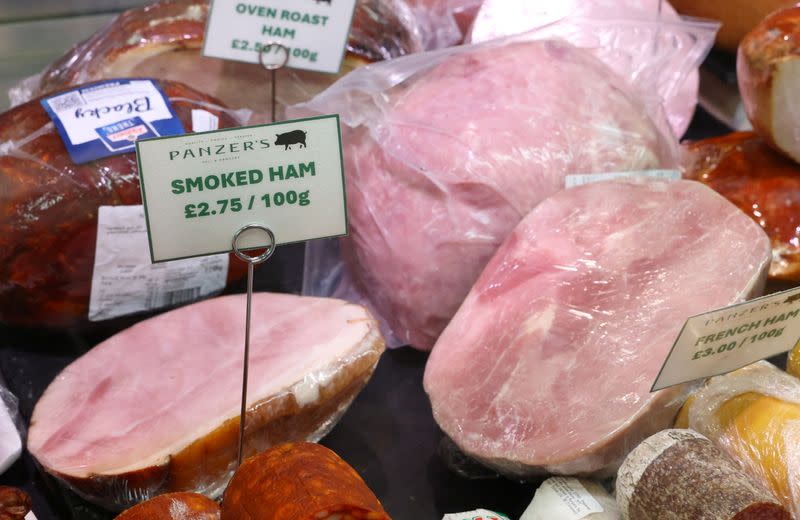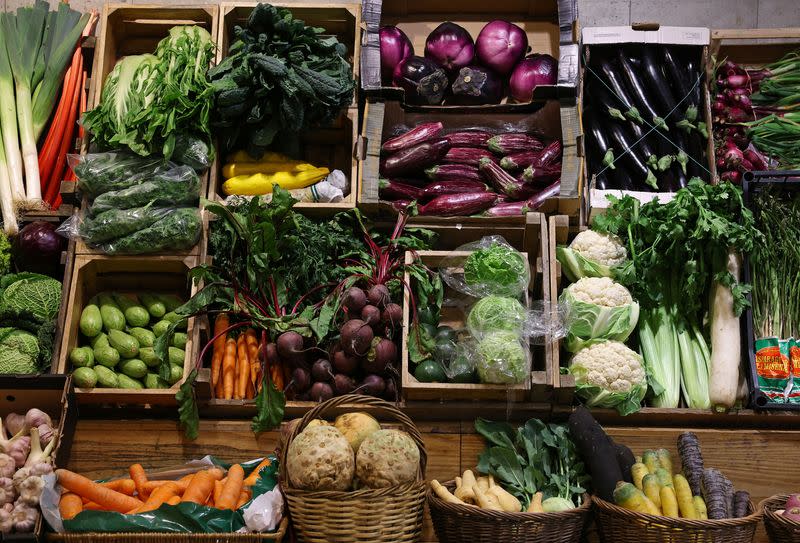Factbox-What are the new post-Brexit border controls starting on April 30?
By James Davey
LONDON (Reuters) - On April 30, the second phase of Britain's new post-Brexit border controls for food imports from the European Union will begin - three years after Britain left the bloc's single market and eight years after it voted to leave the EU.
WHAT IS HAPPENING ON APRIL 30?
The first phase of Britain's new Border Target Operating Model (BTOM), requiring additional certification, came into force on Jan. 31. The second phase starting on April 30 will introduce physical checks for so called "medium risk" animal products, plants and plant products, such as chilled and frozen meat, fish, cheese, eggs, dairy products and certain cut flowers and seeds.
April 30 will also see new charges levied by the government on importers who bring goods through the Port of Dover and Eurotunnel. The government says the so-called common user charge will cover the costs of its new controls and systems.
WHY IS THERE STILL CONFUSION AMONGST IMPORTERS?
Importers do not know what the frequency of physical checks will be and only found out the charges they would face on April 3.
The government says it will take a "pragmatic approach" to introducing the checks and does not expect significant disruption to imports.
"The goods posing the highest biosecurity risk are being prioritised as we build up to full check rates and high levels of compliance," a UK government spokesperson said.
Importers are also unclear over the role of the Sevington border control post some 20 miles inland from the port of Dover.
Also, traders do not have access to an up-to-date list of private control posts and their charging rates.
WHAT ARE UK IMPORTERS SAYING?
While Britain's major supermarkets and large EU suppliers have the financial firepower and resources to handle the new demands, smaller retailers and wholesalers have warned the checks and charges would hurt their businesses, restrict the variety and freshness of food in Britain and drive up prices.
They are worried about disruption to supplies after April 30 and have been stocking up on goods as much as they can.
Many smaller importers share truck loads with other suppliers, so called groupage, so they worry goods could be held up even if their own paperwork is in order.
WHY IS THE GOVERNMENT MAKING THE CHANGES?
The government says the new checks are essential to help prevent diseases and pests entering Britain and will level the playing field for UK exporters.
Britain has repeatedly delayed imposing checks on EU imports. By contrast, the EU immediately enforced its rules, leading to port delays in 2021 and prompting some British exporters, such as cheese-makers and high-end beef farmers, to give up on selling to the bloc, at least initially.
(Reporting by James Davey; Editing by Alex Richardson)


